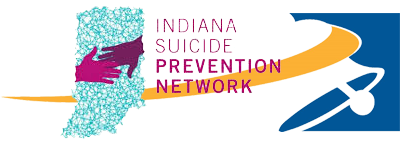Advocacy & Policy
Advocacy for suicide prevention happens in local communities through local suicide prevention coalitions, councils, and task forces (find these on our Resources page (link here)) and also at the state level by our parent organization, Mental Health America of Indiana. The national American Foundation for Suicide Prevention also organizes Field Advocates who receive information/emails from AFSP Public Policy Team regarding legislation. The Indiana chapter of the American Foundation for Suicide Prevention hosts an a State Capitol or Advocacy Day each year.
Mental Health America of Indiana’s advocacy network echoes a powerful voice for change. Thousands of individuals statewide take active roles in protecting Indiana’s mental health and suicide prevention through legislative advocacy. They welcome all to join them in advocating for policy reform and systems change. To join MHAI in continuing their mission to bring victory over mental illness and prevent suicide in Indiana, sign up to become a mental health advocate on their policy page.

Upcoming Legislation
To find out about upcoming legislation on mental health and suicide prevention and who to contact about that legislation, sign up to receive Policy alerts from MHAI on their Voter Voice page. To find out about upcoming legislation on suicide prevention, use the box on the bottom right side of MHAI’s Voter Voice page to search for bills related to suicide.
Overview of Existing Suicide Prevention-related Policy
2017: HB 1430
This bill required teacher training for grades 5-12 (every three years, 2 hours of evidence-based training), required suicide prevention, intervention and postvention policy for schools, required first responder training, and required that a suicide prevention director position be created and led by the Indiana Division of Mental Health Addiction. (IC 20-28-3-6)
2020: HEA 1003
Made changes to the mandated teacher suicide prevention training. It can be in-person, electronic, or self-paced training. See section 3 of the Department of Education memo of required trainings for school employees. (IC 20-28-5.5-1)
2021: HB 1468
Specifies that the division of mental health and addiction (DMHA) has primary oversight over suicide prevention, shall coordinate crisis response services (including mobile crisis teams) and provide coordination and designation of the 9-8-8 crisis hotline centers; the bill also requires that schools have the suicide prevention hotline and crisis text line listed on student IDs for students in grades 6-12
2005: HB 177 (Red Flag Law)
Amended by HB 1651 in 2019 – specifies that police may seize firearms from a person who is determined to be a “dangerous individual.” (1) that individual presents an imminent risk of personal injury to themselves or to somebody else; or (2) that individual may present a risk of personal injury to themselves or to somebody else in the future and the individual: (A) has a mental illness (as defined in IC 12-7-2-130) that may be controlled by medication, and has not demonstrated a pattern of voluntarily and consistently taking the individual’s medication while not under supervision; or (B) is the subject of documented evidence that would give rise to a reasonable belief that the individual has a propensity for violent or emotionally unstable conduct. (IC 35-47-14)

